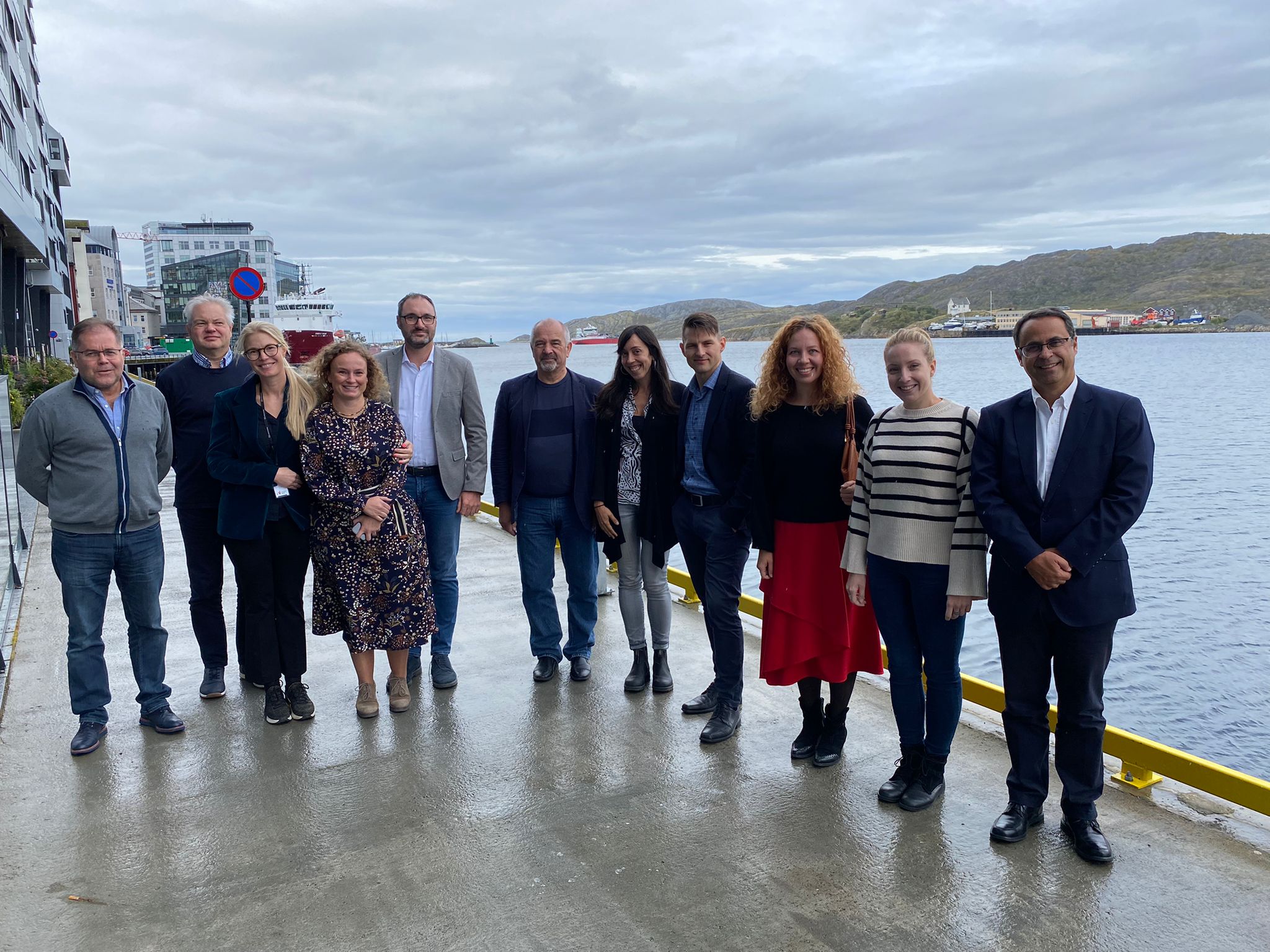
Analysis of RIS3 monitoring indicators in Veneto
Identifying consistent indicators to better orient the regional monitoring tools with a specific focus on the system of regional innovative networks (RIN).
MONITORIS3 Project aims to address the CHALLENGE on MONITORING of the Regional Specialization Strategies (S3) developed by Regions as ex-ante conditionality for implementing Structural Funds.
The project´s MAIN GOAL is to facilitate the IMPROVEMENT OF S3 RELATED STRUCTURAL FUNDS POLICIES DELIVERY through promotion of exchange of experiences and policy learning on MONITORING STRATEGIES OF POLICY INSTRUMENTS among a consortium of regionally relevant actors on S3. MONITORIS3 is supported by the following specific ACTIVITIES and OUTPUTS:
- ONE INTERREGIONAL MAPPING OF S3 MONITORING STRATEGIES AT INTERREGIONAL LEVEL (on 9 preselected POLICY INSTRUMENTS): Regional (partners) “Stay of play” analysis at the beginning of the project.
- INTERREGIONAL POLICY LEARNING PROCESS through 8 INTERREGIONAL THEMATIC SEMINARS around 4 WORKING GROUPS to organize the 9 policy instruments addressed, with active involvement of regional STAKEHOLDERS GROUPS.
- BEST PRACTICES (BBPP) SELECTION and PEER-TO-PEER process (7 STUDY VISITS) to ensure the best introduction of selected BBPP by each region and thus facilitate the exchange.
- 6 REGIONAL ACTION PLANS ON S3 MONITORING elaborated on the basis of selected practices to be transferred to each region around the 9 policy instruments selected.
To achieve these objectives, MONITORIS3 gathers 6 partners from 6 EU Regions and 1 advisory partner with competences on implementing and/or monitoring S3.
€1,640,645.00
Research and innovation
This is a measure to stimulate private investment addressed to the attraction of big companies to carry out their R&D activities through the development of mixed units of centres of R&D with local agents, or by means of other action contributing to the achievement of the general objective of the instrument. This instrument will include the development of plurennial collaborative initiatives focused in a limited group of singular strategic areas for the Region (S3 link), and will demand the creation of strategic consortia among Universities, knowledge generation centres and companies. These collaborative initiatives should seek that their execution process and their results will contribute significantly to the transformation and diversification of entrepreneurial sectors towards smart specialization areas defined within S3. This instruments is specifically addressed to finance equipment from private entities within these “mixed centres” or units needed to enhance their international leadership and facilitate the “catching-up” with most advanced regions in Europe. This instrument will only support projects aligned with priorities and objectives from Galician S3. For this, MIXED CENTRES are included within 2 INSTRUMENTS from the S3ACTION PLAN of GALICIA (described below), in areas of special interest for the Region: Sea, Aquaculture, Biomass and Marine Energies, Tractor Sectors Diversification, Knowledge Economy, ICT and KETs, Active Ageing, Food and Nutrition.
This instrument has a double goal: to foster and support both experimental research and product and processes innovation for companies as well as to increase the employment rate of high qualified personnel. The priority sectors that will be concerned are the ones selected with the RIS3 (smart manufacturing, creative industries, sustainable living and smart agrifood); priorities will be assigned to projects that will exploit the key enabling technologies. Companies could either recruit and hire researchers or make with them a cooperative agreement. This last option has also the benefit to increase the linkages among companies and research institutes that could last after the project end.
This is a measure to stimulate cooperation between R&D institutions and businesses in Nordland. This is necessary to increase the businesses use of R&D as a part of their innovative efforts. Through this instrument the County Council wants to use R&D stimuli measures targeted at building strong expert environments in chosen trades and industries. There is a need to create trade and industry relevant educational and research environments in Nordland of high quality in order to compete in national and international research programs. A part of this is to strengthen the R&D effort relevant for companies through the so-called VRI-project, (Measures for Regional Innovation, a national program run by The Research Council of Norway) and to find good ways to continue this after the completion of the VRI- project in 2017. A system with competence brokers in Nordland will be established to help strengthen small and medium-sized companies’ R&D work.
The priority within the ROP 2014-2020 concerned is Priority Axis 1. Promotion of technology transfer, thematic Objective 1 – consolidation of research, technological development and innovation The aim consists in achieving a broader transfer of research results into innovative commercial applications and aim the consolidation of the smart specialization sectors at regional levels, in order to ensure an efficient capitalization of comparative advantages. The measures will be market and business oriented. Concerning this instrument two major activities are envisaged in Romania: the creation for each region a Smart Specialization Strategy and financing the creation of the innovation support infrastructures and technological transfer. The measure aims to orient the regional public investment towards projects supporting entrepreneurship, innovation, research support and know-how transfer. Using as a platform the already existing clusters, green entrepreneurs, public administration and international networks the initiative’s will converge around strategic business support infrastructures assuring the achievement of the general objective of the instrument. This will be designed according to smart specialization areas and according to EU policies like open innovation,etc. In terms of investment the business infrastructures will be developed by the administration but in terms of competences they will provide the framework to produce, to test, to incubate and to catch-up know-how.
The objective of the policy instrument is to organize public assets and resources into effective business supporting infrastructure aiming at boosting entrepreneurial and R&D&I activities. Regional plans define different type of actions to be implemented in order to meet targeted goals. Assets and resources available are defined business zones around the Region, business incubators, financial instruments, and HR resources from different institutions (i.e. development agencies, universities, chamber of commerce, SMEs associations, municipalities etc.). So far the resources were organized around its specifics with serious lack of coordination. The policy instrument should be improved due to fact that there are measures and actions, and financial instruments existing but their implementation and effectiveness are not meeting the objectives. In addition, there are no precise performance indicators which results with no clear measurement of the actions and delivered results. The bottom line is number of different stakeholders and actions with no measurable results of their actions, and no clear picture of the effectiveness of usage of assets and resources available. The development of SMART action plan will be focused on the emphasis on organizational and management structure. There should be assessment of assets and resources conducted in order to maximize the efficiency of their use.
Objectives: promote the hiring of highly qualified human resources by a subset of SMEs with a high innovation focus also fostering the transition of university researchers to firms aiming to increase firms’ technological capabilities and create the conditions to facilitate future interaction university-firms and network building. Characteristics: The policy instrument will support the monthly wage at a co-funding rate of 50%. In order for SMEs to access the calls for proposals, an innovation plan must be presented that clearly identifies the importance and the roles of the PhDs to be hired. Priority: although not mandatory, this policy instrument has been given top priority with Norte being the only Portuguese region to impose PhD graduates as the minimum ISCED threshold for eligibility. Furthermore, support has been fully aligned with RIS3 priorities and will be subject to dedicated complimentary support actions. Improvements: the use of this instrument is pioneer in Portugal, with no previous experience on its implementation. Furthermore, we envisage difficulties in the implementation phase, especially, given the still existing divide between academia and the economy. It would be important to create learning opportunities and close monitoring in order to improve these systems.

Identifying consistent indicators to better orient the regional monitoring tools with a specific focus on the system of regional innovative networks (RIN).

The monitoring of behaviuoral changes towards innovation in Galician companies was tested under the framework of MONITORIS3 Project

Institutional capacity-building and involvement of main stakeholders in S3 policy instruments monitoring and governance model for Norte Region (Portugal)

Innovation surveys may contribute to show hidden information on innovation investments in companies that quantitative indicators are not able to show.

MONITORIS3 closed the additional activities with the organization of the final event in Bodø

The S3 monitoring system must reflect its strategic nature and be comprehensive, consistently monitoring different public policy objectives

Partners are satisfied with the progress made in the monitoring RIS3 projects

MONITORIS3 project partners share conclusions at the final event of 2nd Phase

Partners discuss on the details towards the end of the 2nd phase

CCDRN presents the results from the questionnaires under their pilot action